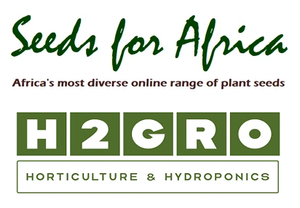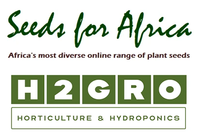It's Organic...It's Medicinal...It's Africa!
It's September and with Heritage Day on 24 September, it's a day we recognise and celebrate the cultural wealth of our nation. And whilst celebrating the cultural heritage of South Africa, it's also an opportunity to acknowledge the continent we are part of and the diverse cultures of Africa and what makes her excellent. One of these great treasures is the many indigenous plants that have medicinal properties.
For years the only form of medicine was the natural plants that were found in nature to ease people's suffering and treat their ailments. They relied on age old passed down information from generation to generation to create traditional medicines and 'muthi'. Most modern medicine is derived from plant-based elements, and we are only now researching the treatments that the traditional medicines brought to the table and how they are, in a lot of cases, more advantageous than modern medicines.

More than 4500 species of plants in Africa are being used in traditional medicines and some even have spiritual uses and are believed to have magical properties. Diseases and ailments that are treated by traditional medicine can range from fever, diabetes, kidney disease, malaria, stomach ulcers, skin conditions and much more.
Growing your own medicinal plants can be a big cost saver, however it does need to be done and used responsibly by the grower and be checked by your local doctor if it's correct and suitable for you to use. Also, a lot of research is available on medicinal plants and their properties and their dosages that are safe.

If we touch on a few of these medicinal plants, Aloe species are very well known to have properties for skin treatments and to treat stomach problems. Aloe arborescens is a lesser-known variety than Aloe vera but has a lot of uses because of its antibacterial properties for bronchitis, as well as its soothing abilities as a gel on the skin and the relief effect it has for people with gastrointestinal problems.
Artemisia afra, wormwood, is indigenous to Africa and has been used in the treatment of coughs, colds and flu and was very popular during the Covid-19 epidemic time.

The next plant is the cancer bush, Sutherlandia frutescens, (pictured above) which is said to boost your immune system and helps with fever and with cold and flu symptoms as well as so much more.
Pterocarpus angolensis is a tree that is used by cultures in the tropical areas of Africa. The bark, root and leaves all have medicinal properties for different ailments.
From Madagascar, close to Africa, is the periwinkle, Catharanthus roseus well known for its uses against diabetes. It also has a lot of antioxidants and antimicrobial properties.

The well-known Rooibos tea (Aspalathus linearis) with its antioxidant properties is well researched and it used to reduce inflammation.
Okra, has been use in the African countries in soups and stews. Its origins are still unsure if it’s Africa or Asia, however, it’s full of antioxidants, good for the heart and boosts the immune system.
The indigenous tree, Kigelia africana is used for wound healing, stomach ailments and it's been traditionally used for erectile dysfunction.
Another native African plant, Annona senegalensis - Wild custard apple / Soursop is used for a number of ailments. The fruit, bark, leaves and gum can all be used to treat wounds, diarrhea, vomiting and much more.
The above are just a few examples, however there is so much more to find in Africa! So, remember, when you plan your next sowing, take a look at some indigenous traditional medicinal plants that Africa is so rich in and blessed by.
And you can surely say that this is “Out of Africa!”
About the Author
Adele Siemssen is the Seeds for Africa Operations supervisor. Adele is a qualified horticulturist with 30 years of hands on experience and loves pets and assisting customers to make their garden dreams come true!









